Ground Report
Caste, Class, and Crumbling Roofs: The Battle for Education in Tamil Nadu
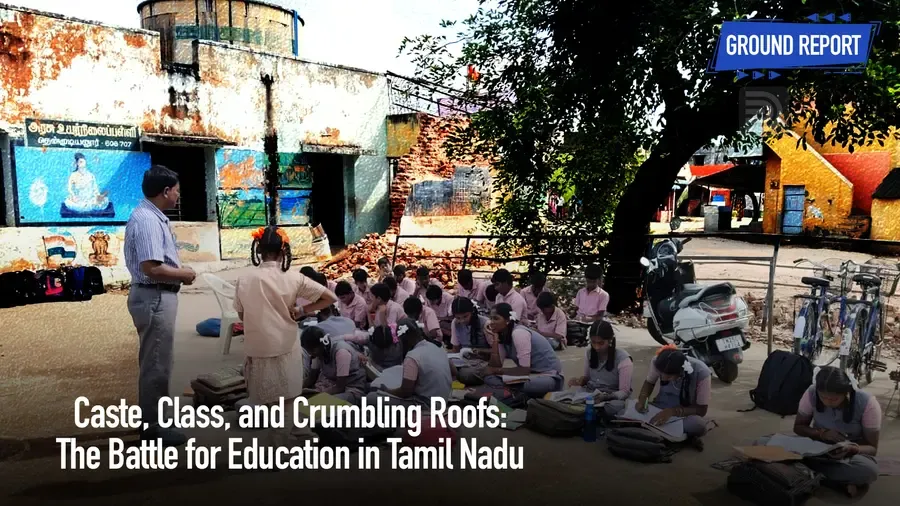

Web desk
Published on Mar 18, 2025, 04:07 PM | 5 min read
In Tamil Nadu, the plight of Dalit students continues to be marred by systemic discrimination and struggles for basic rights such as education and a safe learning environment. The story of students from the Thenmudiannur Government Primary School, located on the district border of Kallakkurichi and Thandarampattu taluk, reveals the harsh realities they face in their pursuit of education.
One of the students from the school shared, "If the school is moved from this village, our education may come to a halt. Our parents do not have the financial capacity to send us to study in distant places. We will even study under a broken roof or under a tree." For these children, education is a lifeline, but it’s a battle fought under the most difficult conditions.
Thenmudiannur is a Dalit-majority village, and its government school is the only one available to the community. Yet, despite the broken building and hostile environment, 124 students continue their education here. This issue arose when ‘upper-caste’ groups in the nearby area of Thandarampattu demanded the relocation of the school to their area. This move was seen as an effort to erase the only space where Dalit children could receive an education. “The upper-castes want the school to be moved to Thandarampattu, an area with a higher population of upper-caste people. Efforts have been made to destroy the school,” a local teacher said.
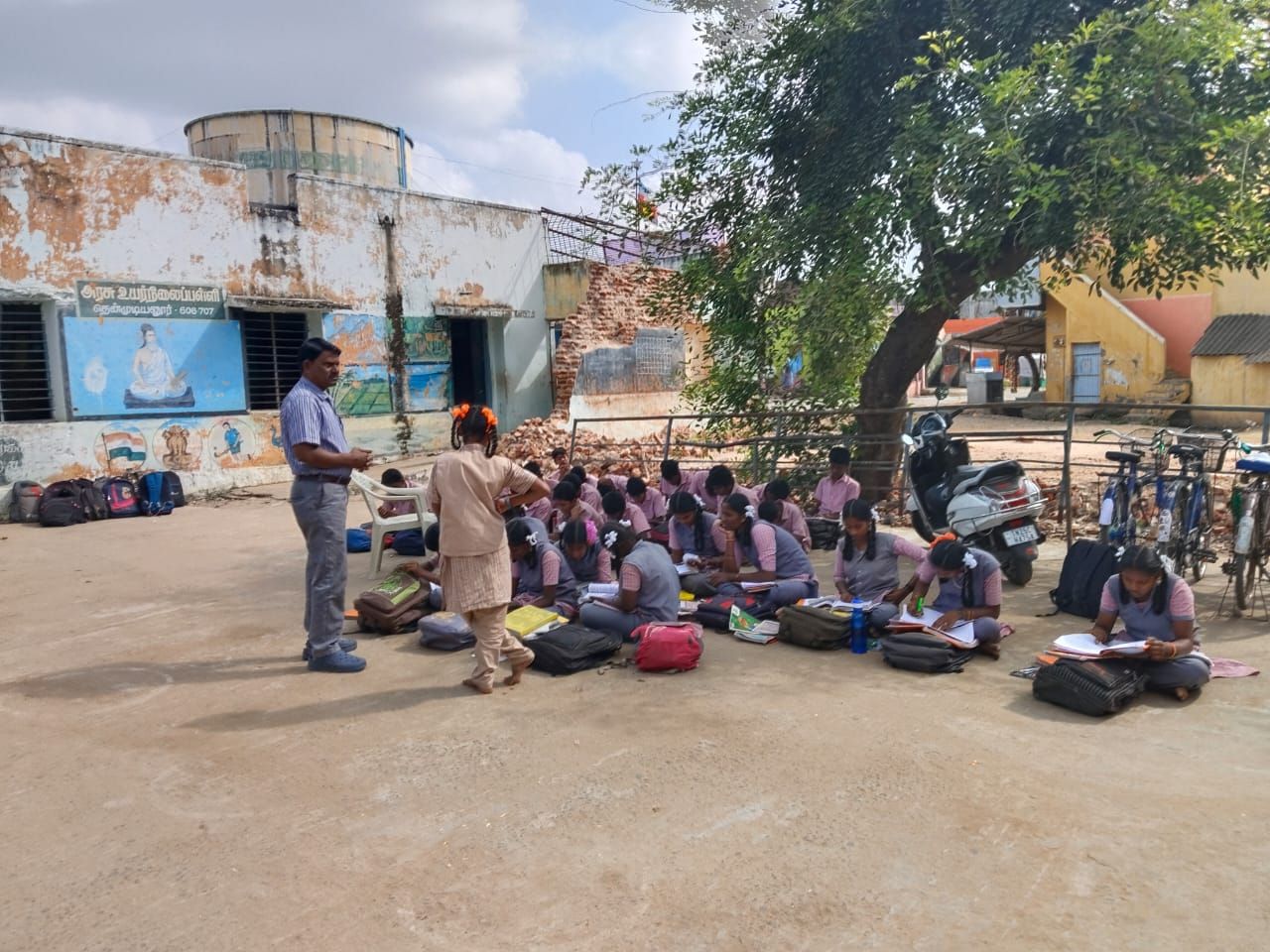
(Students studying sitting under the nearby tree due to the poor condition of the building)
The lack of transportation facilities in the village makes it impossible for Dalit children to travel to schools located farther away. This has led to growing tensions and fears among parents and students alike, who fear that their right to education will be compromised. The school’s condition, including the roof that collapsed just a few months ago, is a stark reminder of the neglect these children face. "The roof of the broken building collapsed just a few months ago while students of the fifth grade were studying. The children were saved only because they ran away after hearing the sound of the collapse," said one of the teachers. The students, whose classrooms were lost, now study under trees in the schoolyard.
Despite repeated requests for repairs, the school has seen no action from authorities. “The upper-castes are concerned that if a new building is built, more Dalit children will study there," a local activist explained. The authorities, under pressure from 'upper-caste' groups, have repeatedly blocked any development efforts, including rebuilding the school.
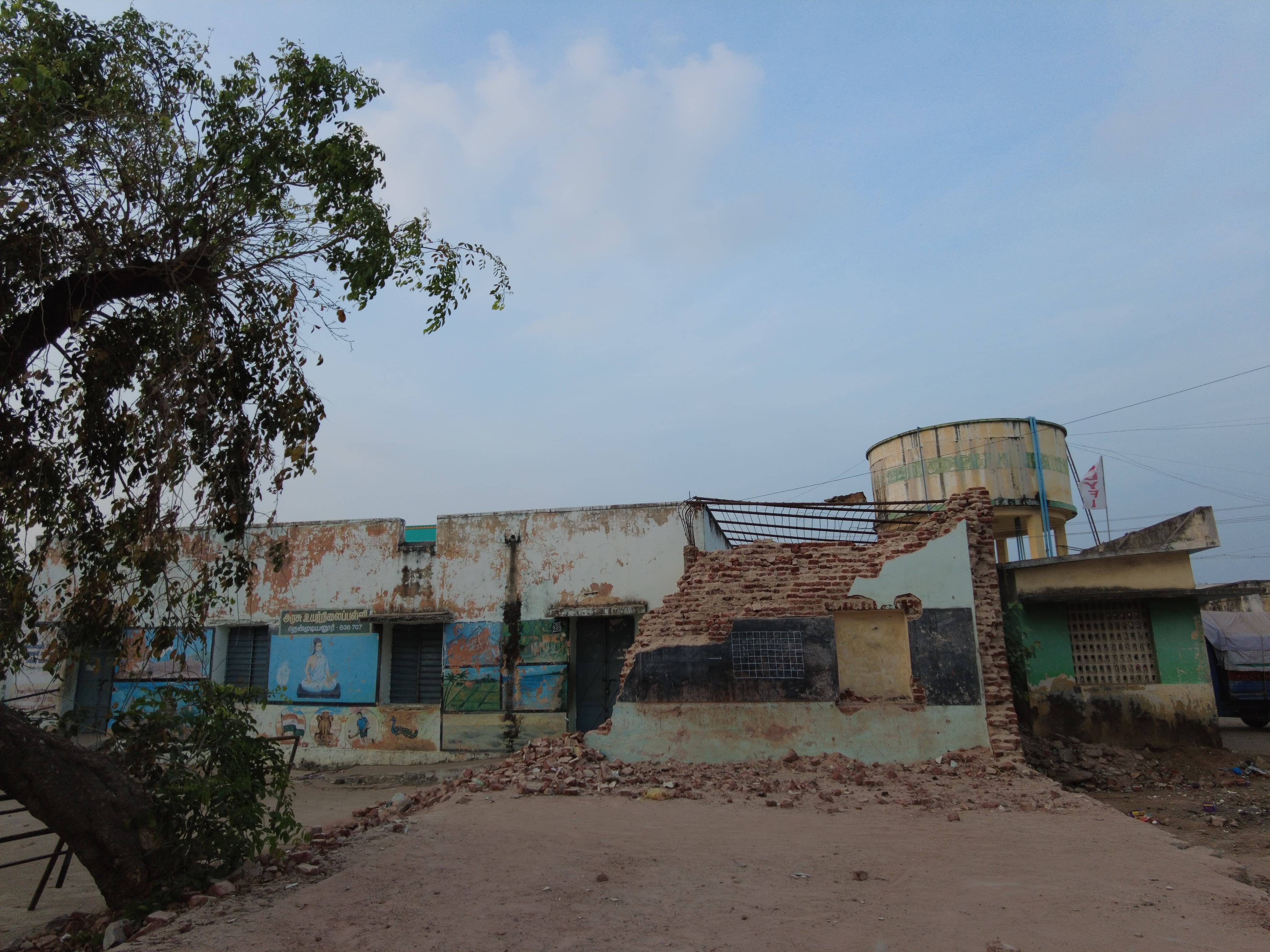
(The collapsed school building)
This issue is not isolated. A recent survey by the Ayithocchadana Munnani (Tamil Nadu Untouchability Eradication Front led by CPI(M)) highlighted the continued presence of caste-based discrimination in schools of Tamil Nadu. The survey, conducted in 2023, revealed that Dalit students were made to clean toilets and were segregated during midday meals based on their caste. "In 156 schools, caste discrimination continues to prevail. In some schools, students are forced to wear caste-identifying bands, colored in red, yellow, green, and ochre, to mark their caste," the survey report stated.
A disturbing incident in August 2023 further emphasized the dangers faced by Dalit students. In Nankuneri, Thirunelveli district, three classmates attacked a Dalit student with a sickle, targeting him based on his caste. When his sibling and mother tried to intervene, they too were assaulted. “Similar caste-based violence has occurred in the SreeVaikundam area of Tuticorin, and there are reports that such violence is reducing Dalit students' access to school," noted a community worker.
The Ayithocchadana Munnani survey results were handed over to Chief Minister M.K. Stalin and the Justice Chandru Commission, which was appointed to investigate caste-based discrimination in the state’s schools. A warning was issued that if action wasn’t taken, the names of schools and teachers practicing discrimination would be made public.
In a broader context, caste-based segregation in schools has deepened over time, with 15 schools found to be practicing caste discrimination, including making Dalit students clean toilets, serve food separately, or use separate glasses for drinking water. The survey also noted that in several schools, students wore caste-specific bands to distinguish between different groups, a practice that continues in many areas. “The caste-based segregation is so deeply embedded that some schools even force Dalit students to eat their meals in separate rooms,” the report concluded.
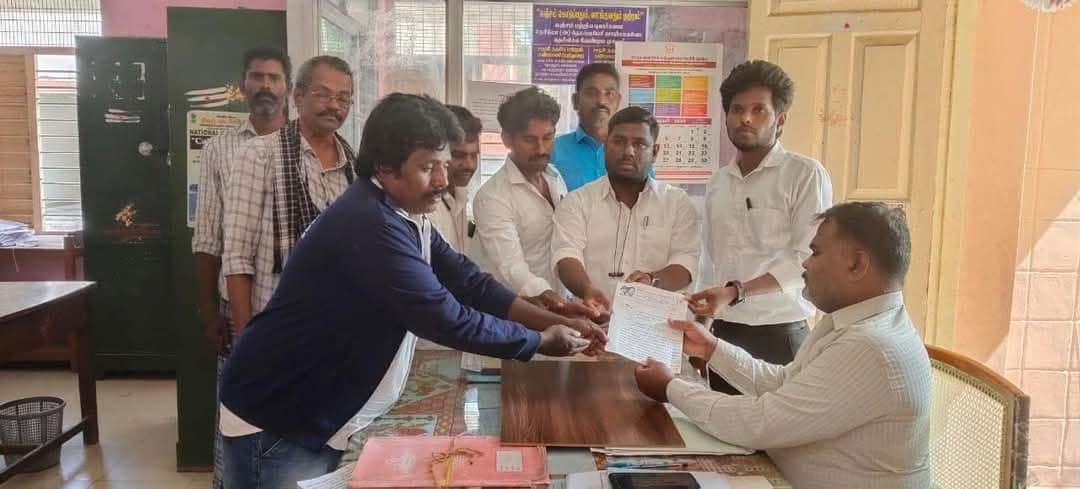
(Under the leadership of DYFI, a complaint was submitted to the Block Development Officer demanding the reconstruction of the school building)
“Following the roof collapse incident, they organized numerous protests and submitted complaints to the Rural Development Office, demanding a solution. Despite these efforts, the issue remains unresolved. We have collected signatures from students and parents, but still, there has been no resolution. The upper-castes are determined to prevent any development that could benefit Dalit children," said C.M. Prakash, a member of the Democratic Youth Federation of India (DYFI) State Secretariat.
The struggle for Dalit students in Tamil Nadu is not just about accessing education; it’s about the right to live and learn with dignity. The systemic issues of caste-based violence, discrimination, and neglect are barriers that many Dalit children continue to face on a daily basis. The fight for their education is far from over, and it requires the collective effort of activists, educators, and the government to create an environment where these children can learn without fear or oppression. As one teacher from the Thennamudiannur school put it, “Education is a right, not a privilege. Our children deserve better.”
(Deshabhimani reporter Vaishnav Babu has spent time on the ground in Tamil Nadu, capturing the struggles and resilience of those fighting against caste oppression. His four-part series, originally published in Deshabhimani Malayalam Daily, brings to light the harsh realities faced by many in this ongoing battle. Now, in Deshabhimani English, we present Vaishnav's reporting to a wider audience, with translation and edits by Anusha Paul)



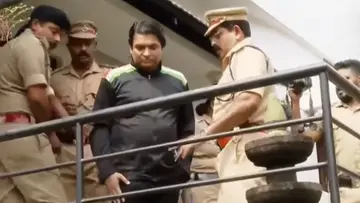
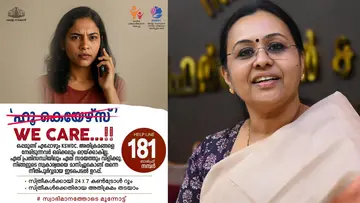

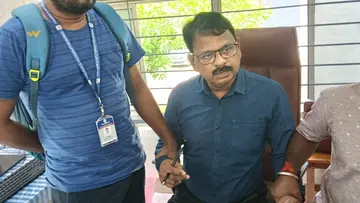
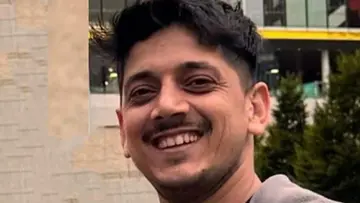

0 comments